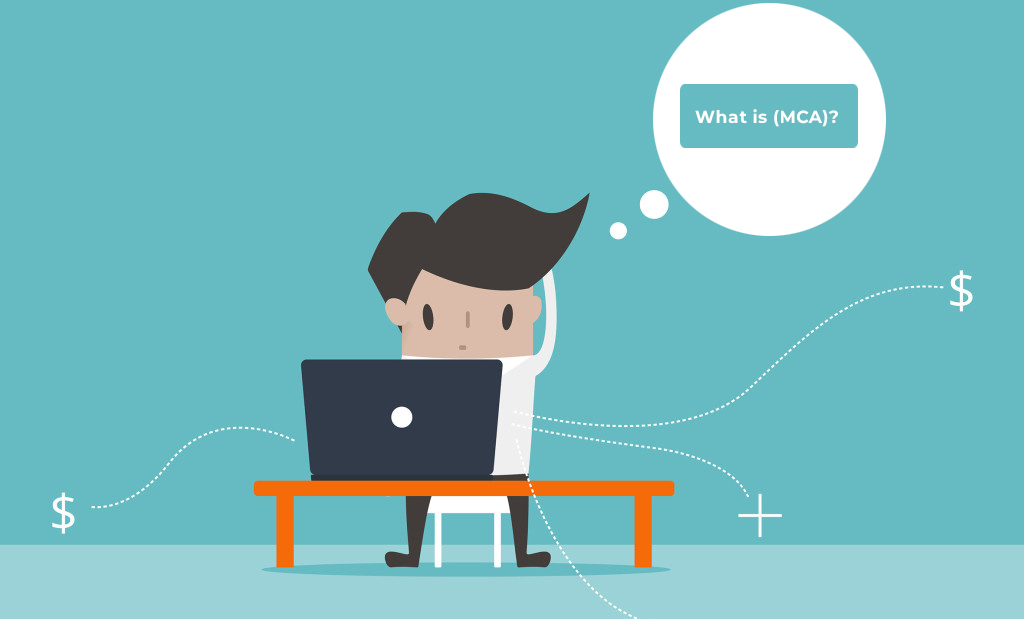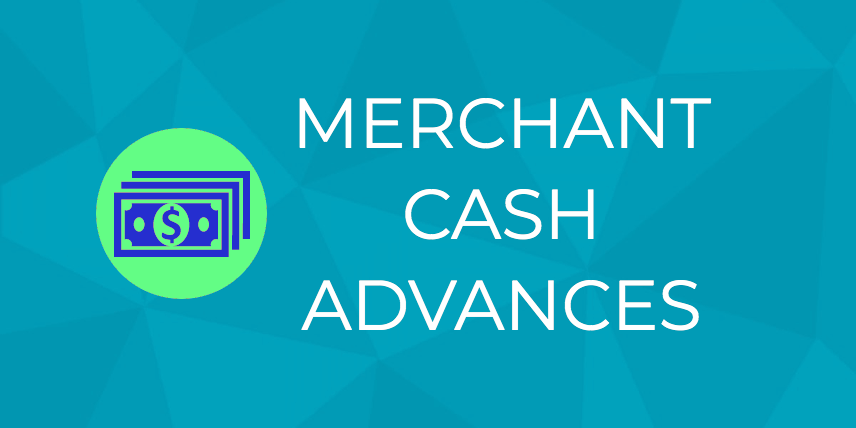Merchant Cash Advance: Ultimate Guide For Business Funding Needs

Starting and running a business is an arduous task. There are hundreds of things that you need to do every day, each more difficult than the last. And even after your best efforts, you might find your business running into some financial problems.
It can get more and more difficult to keep your business afloat if you cannot reach out for small business cash advances or loans or any other type of business credit. In such situations, you need an alternative source of financing that does not require any collateral and can provide quick cash without a lengthy approval process and strict credit requirements.
Merchant Cash Advance, also known as Business Cash Advance, is one such alternative financing option. It helps small businesses get small-term cash advances based on the future card sales of a business instead of collateral.
In this article, we will explore ‘Merchant Cash Advance’ as an alternative financing option. We will also help you answer whether Merchant Cash Advance is right for your business.
Table of Contents
- What is a Merchant Cash Advance (MCA)?
- How does Merchant Cash Advance work?
- What are the benefits of Merchant Cash Advance?
- What are the downsides of Merchant Cash Advance?
- How to Apply for Merchant Cash Advance?
- MCA Requirements
- How long will it take to pay off a Merchant Cash Advance?
- How to know if Merchant Cash Advance is right for your business?
- Summary
What is a Merchant Cash Advance (MCA)?

Merchant Cash Advance is one of the most innovative products in the alternative business financing sector. This is a relatively new concept but has become quite popular with small retail businesses like restaurants, retail stores, and other leisure businesses.
Simply put, Merchant Cash Advance provides you with an advance against future sales. So, if you go for a Merchant Cash Advance, your business will gain upfront working capital in exchange for a percentage of future sales.
In MCA, the lender works with your current bank and/or credit card terminal provider so they can know about your business credit and how much money is flowing through your business. Card terminal provider helps install card terminals for businesses that want to accept payments through credit and debit cards. In this way, MCA differs from other types of lending..
A Merchant Cash Advance uses your bank account deposits and/or business’s card terminal to secure lending. Your loan is secured against future sales made by your business. It is perfect for small businesses without many assets, but who have a good volume of deposits and card transactions every month. Repayments are then taken as a proportion of the revenue of your business. This makes it a quick and easy funding solution for many Small Businesses.
This type of funding is easily accessible for all businesses that have a steady volume of sales.
How does Merchant Cash Advance work?
A Merchant Cash Advance is ideally suited for businesses whose revenue comes primarily from credit and debit card sales, such as restaurants, shops, hospitals, and other businesses. But, nowadays, they are also made available to businesses that don’t rely heavily on credit card or debit card sales.
An MCA provider gives you an upfront sum of cash in exchange for a share of your future sales. Such providers can structure your repayments in two ways, depending on your proportion of sales.
- You can repay by giving the MCA provider a share of your future card sales
OR
- You can repay by using Automated Clearing House (ACH) withdrawals which remit fixed daily or weekly debits from your bank account.
The MCAs that can be repaid using ACH withdrawals are called ACH Merchant Cash Advances.
In a regular loan, you have to make one fixed payment every month from a bank account over a set repayment period. In case of a Merchant Cash Advance, you make daily or weekly payments, with fees, until you have paid the advance.
Your ability to repay the Merchant Cash Advance determines the ‘fees’ that you will have to pay. The MCA provider determines a factor rate based on its risk assessment, which is usually between 1.1 and 1.6. The higher the factor rate, the higher the fees that you will have to pay. You can multiply the cash advance by the factor rate to get the total repayment amount.
Let us discuss in detail the two repayment structures mentioned above:
Percent of Card Sales
In this scenario, the Business Cash Advance provider automatically deducts a percentage of your card sales until the agreed amount has been repaid in full. The percentage deducted is directly dependent on the number of sales and card transactions made by your business in a month. The more the sales, the more will be the percentage deducted, and if the sales lower for some months, the deductions will also reduce.
So, the more transactions a business does, the faster they’ll be able to repay the advance. The repayment period mostly ranges from 3 to 12 months. The higher your sales, the faster you’ll repay the Business Cash Advance.
Let us take an example to understand this better.
Let’s say you need $30,000 to purchase new equipment for your bakery. You apply and get approval for a Business Cash Advance of $30,000. The MCA provider has assigned a factor rate of 1.4 on the contract, so you owe them $42,000.
Your Business Cash Advance provider deducts 10% of your monthly sales until you’ve repaid the $30,000, and your bakery averages $50,000 in revenue per month. So, you’ll have to repay $5,000 monthly, with daily payments of $167 in a 30-day month. At this pace, you’ll pay off the advance by the ninth month. But if your revenue dropped to $30,000 per month, you wouldn’t be able to repay the MCA in full until the 14th month, paying $100 daily.
You can check out our Loan Calculator to find out your total payback amount, amount of monthly payments, and the number of payments that you will have to make to clear the total amount.
Fixed Daily Withdrawals
This type of agreement lays down the provision to withdraw a fixed payment daily or weekly, based on an estimate of your monthly revenue. For example, a business with $50,000 in monthly revenue would owe $167 per day or $1,167 per week based on a percentage of sales of 10%.
Unlike the repayment structure tied to the sales, your payment does not fluctuate. This means you will pay the same amount irrespective of whether your sales are down or up.
What are the benefits of Merchant Cash Advance?

Merchant Cash Advance provides a great opportunity for small businesses with few assets to raise funds for their operation and expansion. Now that you know how MCA works, let us find out how it can be beneficial for your business:
Flexible
In most cases, you will make the repayments as a percentage of revenue. So, they go up and down proportionally with the income of your business. This means when things are going good, you repay more each month. But, if the business is going through a difficult time (low sales) you’ll repay a smaller amount. It’s a good arrangement for many companies because you can have more confidence that you’ll be able to make payments if you hit a bump in the road.
Easy
Another benefit of the Merchant Cash Advance loans is that repayments can seem relatively easy. Since the lender works directly with the bank and/or card terminal provider, the percentage they take for repayments is taken at the source, much like the payment of federal tax.
Options
One more advantage of a Merchant Cash Advance loan is that it effectively opens a new line of credit. It is possible to get other types of finance for your business at the same time as a merchant cash advance. This can be useful for lots of businesses. For example, if you have a machinery lease already, it is possible to get Merchant Cash Advance loans for added general cashflow at the same time.
No Collateral
Merchant Cash Advances are unsecured and so you don’t need collateral. This implies that you do not have to surrender any personal or business assets in case your sales fall and you fail to repay. However, the MCA provider may require a personal guarantee. A personal guarantee is a written agreement that makes you personally responsible for repaying the advance. If this is the case, the MCA provider may still try to recoup any losses.
What are the downsides of Merchant Cash Advance?
Merchant Cash Advance has a lot of benefits but you should always consider the drawbacks when analyzing your financing options. Let us take a look at a few downsides of Merchant Cash Advance:
- The amount you can borrow depends on your turnover. This means that if you want to borrow $4,000 but your business makes $800 per month, you will not be able to secure that level of lending because it’s not in coherence with your cash flow position. The rule-of-thumb is that you will be able to get finance equivalent to what your business receives in an average month.
- If your business receives payment through a variety of different modes, Merchant Cash Advance may not be a perfect solution. This is because it is ideal for firms that do the majority of their business via bank deposits and/or card terminal. But, as we have seen above, with repayment through fixed daily withdrawals, this drawback is not so strong anymore.
- Many lenders only work with specific card terminal providers, which might limit your choice depending on the provider you currently use.
How to Apply for Merchant Cash Advance?
The application process for a Merchant Cash Advance is not as complicated as a traditional loan. The time taken to approve your Merchant Cash Advance could be anywhere from a few hours to a couple of days, depending on the paperwork and other formalities required. Once the process is approved, a business could get the funds in their bank account within a day.
Let us take a look at the process that a business needs to follow to secure Merchant Cash Advance.
Application
Your application for funding will be one or two pages. You will have to provide your social security number, Business Tax ID, and other relevant information about your business. You can also apply online for the same.
Documentation
You will have to provide six months of credit card processing reports as well as bank statements. You will most likely also have to provide proof of citizenship and a copy of the lease for the business location.
Approval
The Merchant Cash Advance for your business could receive approval as early as within a few hours.
Funding
Upon finalizing all the relevant details, the money from the MCA will be deposited into the bank account of the business as early as the next business day, and repayment through the merchant account will begin automatically.
MCA Requirements
There are certain requirements that businesses must fulfill before applying for a Merchant Cash Advance with Global Connect Pro Financial. The business must be at least 3 months old. Your credit score must be 350 or above. Your business must reside in the United States of America. Your business must have generated a revenue of at least $60,000 through sales in the past 12 months.
If you and your business fulfill the aforementioned requirements, you can apply for a Merchant Cash Advance. You will also need the following documents to apply for a Merchant Cash Advance:
- Driver's License
- Voided Business Check
- Bank Statements
- Credit Score
- Business Tax Returns (only required for higher amounts)
- Credit Card Processing Statements
How long will it take to pay off a Merchant Cash Advance?
The average repayment time for a Merchant Cash Advance is 8 to 9 months. But, the term can be as short as 4 months and as long as 18, depending on your business.
The higher the fixed percentage of your sales you’re paying the lender with, the shorter your repayment time, and the tighter your cash flow.
How to know if Merchant Cash Advance is right for your business?
Merchant Cash Advance offers great benefits to small businesses. This includes the payment schedule where you only pay back your advance when your business makes a sale. If you have had strong sales but struggle with too little credit, or a bad credit score, then a Merchant Cash Advance will be a good option for your business.
An MCA is a great option if your business needs access to working capital quickly to take advantage of an opportunity, or to purchase inventory at a discount, or for a unique marketing opportunity, or other short-term capital requirements. Since credit requirements for Merchant Cash Advance are less stringent, it could be a financing option for businesses that do a lot of credit card transactions but might have not-so-perfect credit.
Your business typically will not qualify for a Merchant Cash Advance service if you have a prior bankruptcy on file, if your business has been in existence for less than one year, or if you do not have bank deposits and/or process card payments for your customers currently. This segment of the lending industry is not regulated and is unsecured, so it's important to understand the costs beforehand.
Merchant Cash Advances are not for all businesses. If you have multiple revenue streams, a Merchant Cash Advance might not be best suited for you. In contrast, those who receive most of their turnover through EFTPOS (Electronic Funds Transfer at Point of Sale) terminals or card terminals could benefit.
Alternatively, you can apply online for a Merchant Cash Advance or talk to a lending expert at Global Connect Pro to conclusively determine whether Merchant Cash Advance is right for you and your business.
Summary
An MCA can be a great option for businesses that need cash quickly since it has a low barrier for approval. Although this form of business credit is never cheap, if you are in a tight spot, it can help carry you through the difficult times until your business’s financial position improves.
Merchant cash advances, while fast and convenient, tend to be worth their price only if you are confident that you can repay them quickly and without significantly harming your cash flow.
So, take this decision after giving it a serious thought. We can also help you reach a better decision. Leave us a comment or talk to our lending experts for further assistance!


Write a reply or comment
You must be logged in to post a comment.